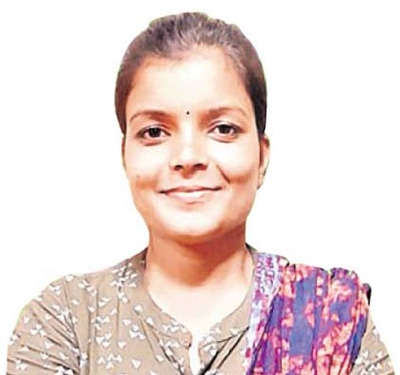


Varsha Raikwar, a 25-year-old radio jockey from a non-descript village in Madhya Pradesh, is using community radio – Radio Bundelkhand – to spread awareness about climate change. In 2021, She found a place among 17 Promising Young Environmental Activists selected for UN India’s ‘We The Change’ campaign.
In the small town of Orchha – located in Madhya Pradesh’s Bundelkhand region – Varsha’s compering is heard loud and clear when she spreads the message of protecting the mother earth. The young broadcasting climate activist has been educating hundreds of villages about the repercussions of climate change and environmental degradation on the human race. The only woman radio jockey (RJ) of the Community Radio Bundelkhand, her show ‘Shubh Kal’ that reaches 150 villages spread across Madhya Pradesh and Uttar Pradesh has over 5 lakh listeners.
In areas where her voice cannot reach, the team resorts to narrowcasting – taking radio to the people. The team brings together a group of people and plays the recorded programme for them. In the last five years, Varsha along with her colleagues has made multiple radio programmes to educate people about the pivotal role of environment safety in people’s lives. Varsha started her career as a full-time RJ in 2017. Prior to this, she didn’t have much knowledge about climate change and global warming. But the seed of interest was planted at home.
Growing up watching her father work as a farmer, she noticed that crop yield is gradually declining due to droughts and irregular water supply. “When I asked my father why that was happening, he simply said that this was God’s wish. But I wasn’t convinced, and wondered why it had to be like this.” This provided her the food for thought and prompted her to search for answers. The more she understood how the changing environment is affecting farming, the more her interest piqued. She also understood the immense importance of forests, rivers and natural ecosystem around her. Environment is a burning issue today, but there is very less awareness among people about it. “Even if we put rural areas aside, there’s not much curiosity amongst the metropolitan cities as well,” she said.